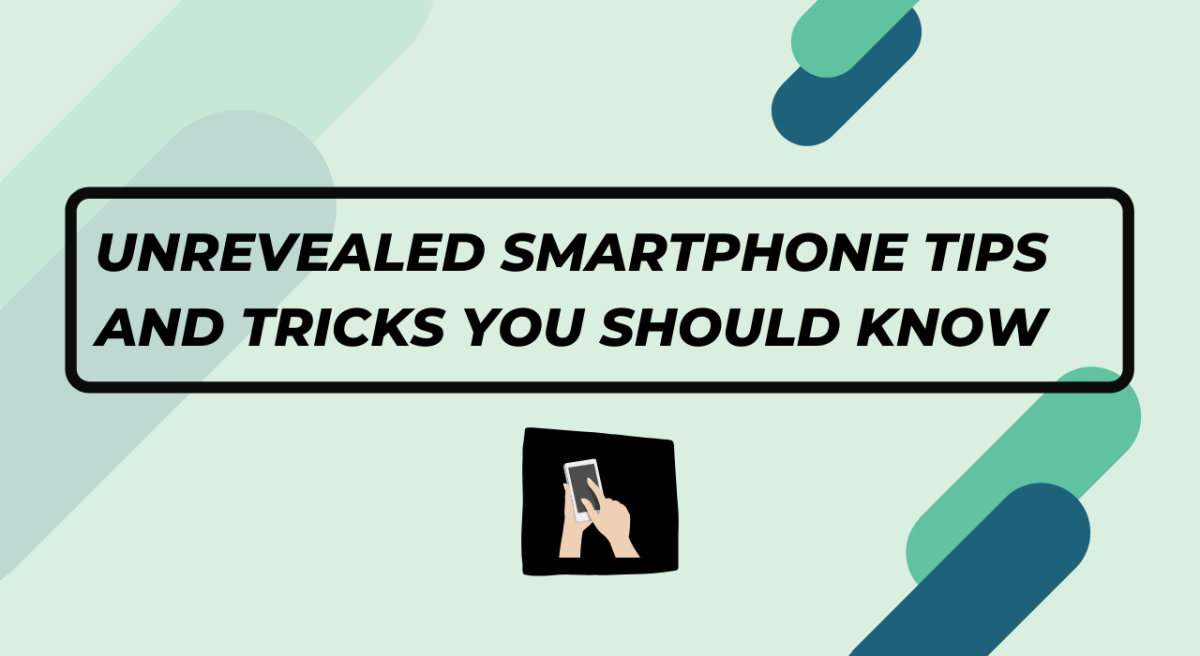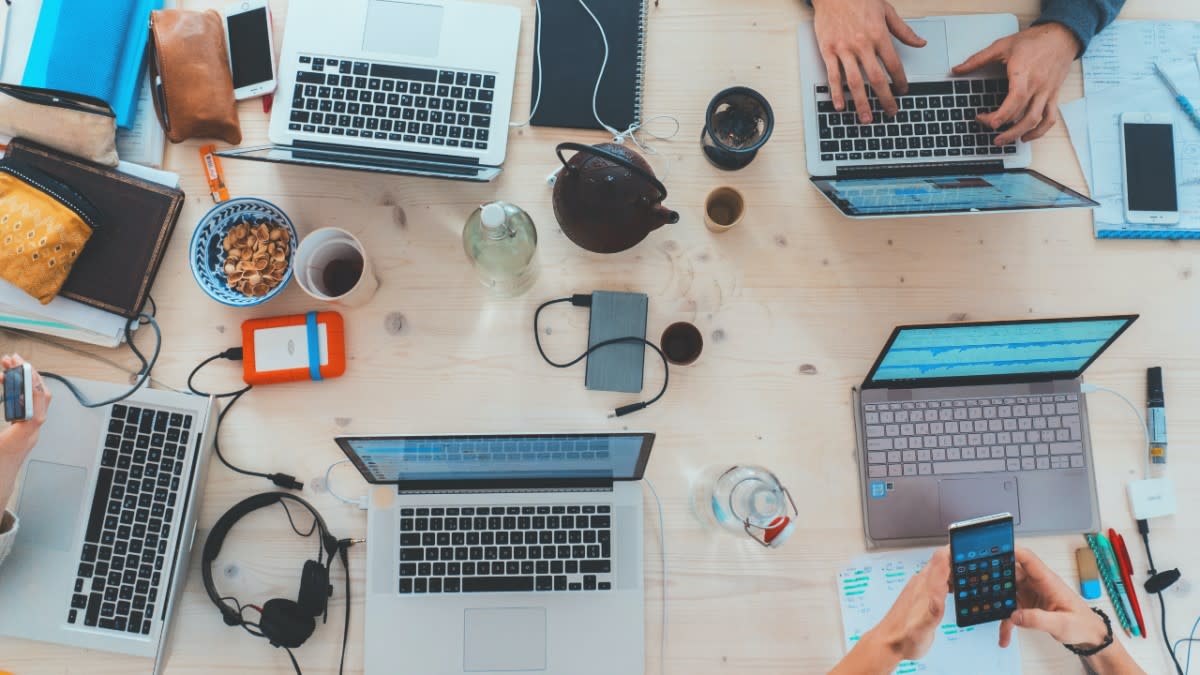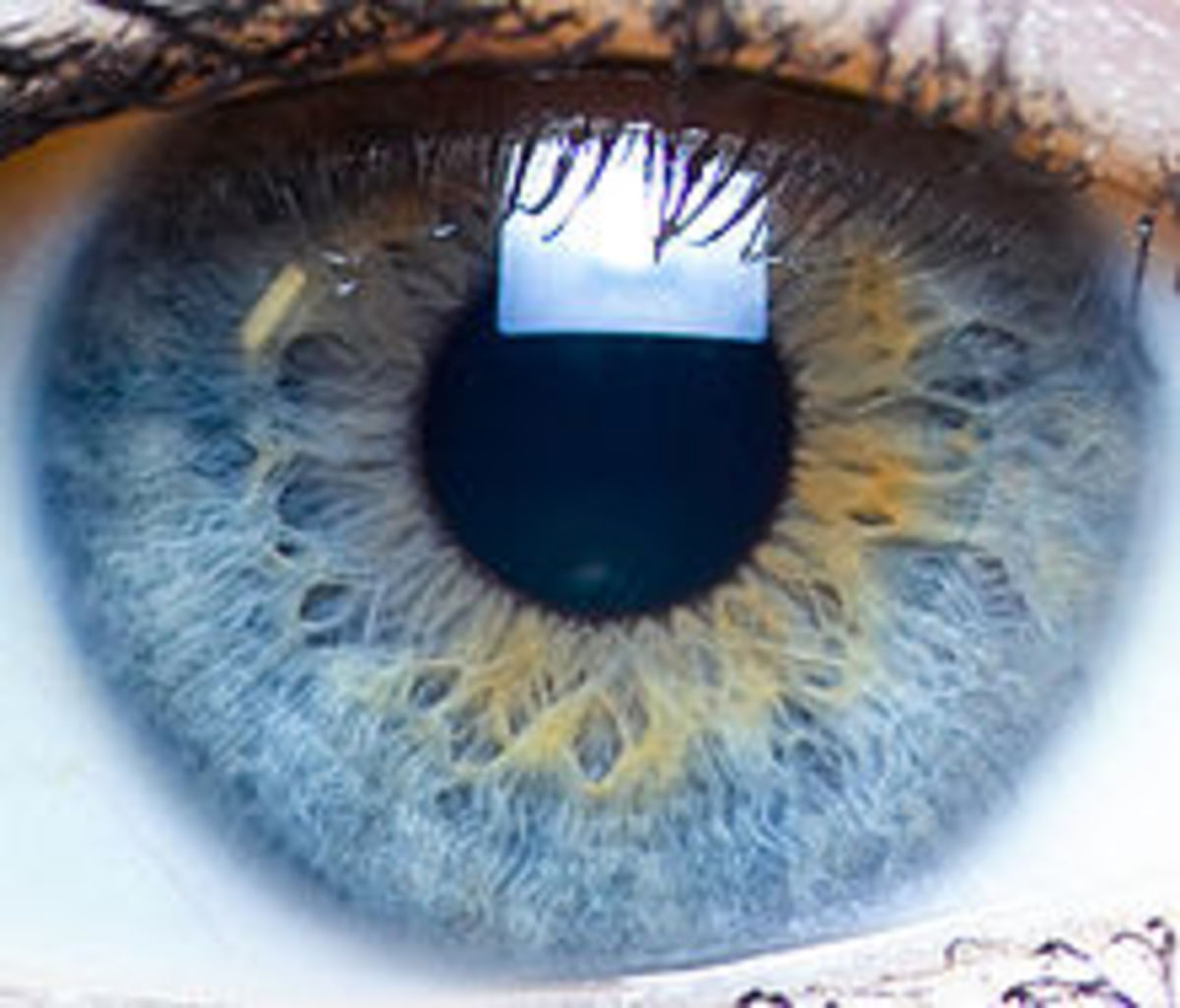Six Proven Ways to Protect Your Digital Wellbeing
Introduction
For the last couple of years, people are extensively using their smartphones, laptops, and other digital devices every day. However, knowingly or unknowingly, they are deteriorating their digital wellbeing.
The devices that are meant for making your lives easier are taking the forefront and influencing your lives in more negative than positive ways. It's time you should utilize technology in a way it is meant to be. It's time you should look after your health and limit yourself from spending unnecessary time on technology.that is a double-faced coin. People have become overly dependent and addicted to these digital devices.
They have seized the quality of your lives. And if you don’t change your habits soon or take any precautionary actions to tackle its impact, you will soon develop a cluttered mindset.
Overuse of technology has a negative impact on your mental health, both directly and indirectly. Therefore, it is really important to look after and maintain your digital wellbeing.
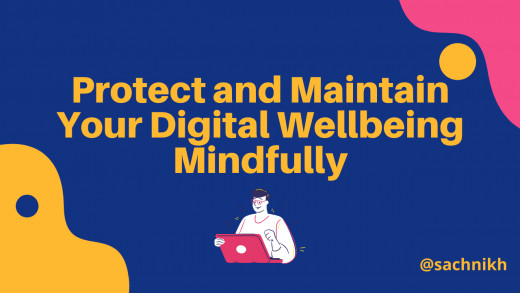
Throughout the day you all are surrounded by technology of various kinds. But, as we already know, the most part is taken by the pocket-sized thing called the smartphone. You've probably heard about it.
While utilizing the technology in a resourceful way and for a limited time is good for mental health, depending on it for every task is not ethical. This has started to influence your lifestyle in many different ways.
Most of the people start and finish off their day with smartphones as go-to partners. And even after some people realizing it is not good practice, they are unable to draw themselves out from the addiction.
Every time your smartphone buzzes up, we quickly turn towards it to check out the notifications. And even if you’re spending too much time doing useful things, you must take frequent breaks, instead of working for continuous hours.
The time has for you to understand this. It’s time you should improve and maintain mindful digital wellbeing no matter what. But what exactly is 'digital wellbeing' means. Well, I've tried my best to explain the concept below.
What is Digital Wellbeing?
A lot of people misunderstood the meaning of digital wellbeing or digital mindfulness. Some say it is the condition of complete isolation from all kinds of technology while others are in the favor that it is more than just a hypothetical marketing gimmick. Well, let me put it this way.
Digital wellbeing is the movement that describes the importance of breaking up from all kinds of technology in your life frequently. It means you should be able to unwind and unplug time and again to improve your overall life balance.
You must limit the usage of all kinds of digital devices and take control of your life from technology addiction. The more you look after your digital wellbeing, the better you will be able to enjoy your life and stay peaceful.
According to a study by Leeds University, England,
“The tech has become one of the leading causes of anxiety.”
Remember to start doing it right away before the technology controls you. That's what the digital wellbeing concept is all about. It doesn’t necessarily mean putting you in complete isolation from the technology or world, but to utilize your time consciously on technology.
Tips to Tackle the Influence of Addictive Technology in Your Life
Most of the smartphones you use today come with various exciting features that stimulate us to use it more often in search of an immersive experience. And due to this, you may not realize it; you end up spending hours scrolling Instagram aimlessly, exploring YouTube videos, or watching the show that your friend recently suggested to you continuously without bothering about the need.
To help you solve these problems, I've compiled a few potential solutions below.. But you will need to generously follow the same. It is time you should find the balance in your life with technology before things go out of hand.
Opting for digital minimalism might not be very easy for everyone to follow. But if you stay conscious, focused, and take proper measures and actions, you can stay safe and maintain healthy digital wellbeing.
So, here are some practical ways through which you can minimize your dependence on technology in your life:
a) Cut Your Average Screen Usage Time
Today, your smartphone is everything. From checking your work emails, booking tickets, to watching movies and shows, it has consolidated your lives much more than you realize.
You might be using your smartphone for various important things to keep your work or financial thing sorted. However, to maintain digital wellness, it is important to keep track of your daily average screen usage time.
Tracking the daily usage helps you to judge whether you are spending too much time on your smartphone or not. If yes, you must cut the time to at least half off your current usage to focus only on the important things throughout the day.
In the age of information technology, it has become really difficult to limit ourselves from consuming the exciting information and content. However, if you are dedicated and determined enough to change, nothing can influence or take control of your life.
So, the first thing you should do to maintain healthy digital wellbeing is to restrict screen usage time.
b) Practice Social Distancing, not Social Isolation
As most of the world is under lockdown, you must be using your smartphone or laptop to keep you engaged and entertained. But you cannot spend 24 hours on these devices. Nether it will be recommended to anyone.
Due to this lockdown, some people are spending hours and hours on their smartphones. But that's not the way it is. Whenever possible, try not to pick up your smartphone for unnecessary things.
While staying at home, you may also be maintaining social distancing. However, that doesn’t mean you will need to stay alone all day long.
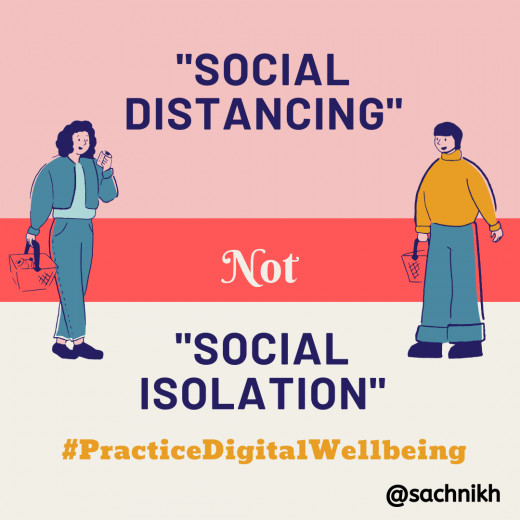
Social distancing should not be misunderstood with complete isolation without talking to anyone. Nor should it be taken as the excuse to indulge in technology all day long. If you’re doing work from home, make sure to take frequent breaks. Also, avoid the overload of technology usage whenever possible.
Social distancing doesn’t mean social isolation. As pointed out by many experts, social isolation can lead you to poor mental health. We, as Homo sapiens, are social beings, aren’t we?
So, to maintain healthy digital wellbeing, rather than spending most of your time on digital devices, you can remember some old but gold memories with your family members or play some indoor games like ludo or monopoly.
c) Set Boundaries on Social Media
In today’s digital world, it has become really important to stay active on various social media platforms. Keeping an eye on social media will not only update you about the latest happenings but will also allow you to connect with like-minded people and professionals.
However, that doesn’t mean you will have to check your phone time and again after a few minutes. You must save yourself from being a social media slave.
To keep your digital health at par, you must set some boundaries and limitations on social media usage. Decide how much time you will be spending on each platform every day, and try to stick to it.
If you are using Facebook too much, try to decrease the usage time or block all the notifications until you don’t open the app again. The same you can do with other social media apps, like Instagram, LinkedIn, or Twitter.
Assign different days for different work. On Monday and Tuesday, you may decide to only do comments on posts you like, while on Thursday or Friday, you can create and share a post on your profile.
You can also decide to post new content on one day and check back for notifications on the next day. Following this will help you tackle social media addiction so that you can focus more on your real socialization.
Are you finding it difficult to stay away from social media apps?
d) Learn a New Skill Online Responsibly
Studies suggest that a human mind can focus and consume information continuously for about fifty minutes! Yes, that's true.
So, go back and remember your school or college days when you are unable to concentrate and have difficulty in maintaining the interest for an extended time.
The same applies when you are taking an online class or learning a new skill through online courses. To tackle the negative impact of technology on your mind and body, it is crucial not to spend too much time in front of the screen in the name of learning something new.
Of course, your enthusiasm for learning a new course should not be low, but always safe yourself from being overly excited.
Instead of finishing the complete online course in two or three days, you must go slowly and should typically watch only one to two videos of 40-50 minutes each every day.
Apart from maintaining your digital wellbeing, this will also help you understand the topic more clearly.
e) Text less, Talk More
You might have heard or read from various sources that you should talk less and listen more. Practicing this habit not only increases your intellectual thinking but also maintains inner peace.
However, in this digital era, it might change a bit. Despite using texting as the method of everyday communication, you can convey your message to the other person via proper call or even voice notes whenever possible.
Yes, it might not sound feasible at first, but if you practice this habit regularly, you will see a massive boost in your confidence level. And as you save time with calls or voice notes, you will ultimately save yourself from being the technology addict all the time.
Only messages that are relevant and important will be shared with the other person.

f) Have a Meal Without your Phone
Many people have the habit of using their mobiles while taking their breakfast, lunch, or dinner. Although you may not realize it, when you do that, you’re not focusing on eating food rather you’re spending your time and energy on your pocket-sized friend of yours.
Even most of the people nowadays take their smartphones with them in the bathroom. This habit should also be changed it you want to achieve better digital wellbeing.
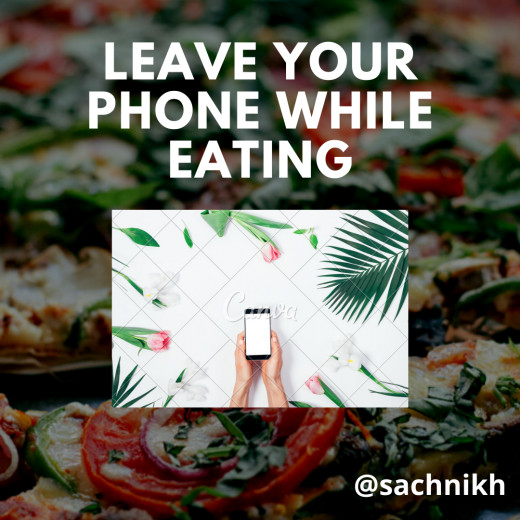
Also, you should avoid watching television while eating your meal whenever possible. This will give your brain a message that you’re more focused on eating rather than on other things.
After having lunch or dinner, do not try to get a hold on your digital devices immediately. Try to go for a quick walk and take at least 100-200 steps.
Or else you can gossip about the latest celebrity news with your brother or sister that you heard or read in the newspaper recently.
g) Recognize Your Behavior or Pattern
Whenever you are trying to rush to the computer for work, or check your phone, stop right away. Just stand still and take a few deep breaths before you finally decide to move on.
And after you’re done with playing phone or working (ideally for max. 40-50 minutes), notice what your mind or body is feeling at the moment. Is it feeling stressed out? Or you’re feeling burnt out?
Well, chances are you might be having one of these feelings. Sit back and self-introspect yourself. Why does that happen? And what should you do to not let that happen again?
Don’t worry, these days, it could be normal to feel that way. But that doesn’t mean you won’t change this habit. You will need to recognize your body’s behavior during the usage of digital devices.
Identify the pattern and then work on it for the next couple of weeks. And if you follow those steps, I’m sure it will help you tackle the influence of technology on your everyday life.
Non-maintenance of digital minimalism will severely hamper your mental as well as physical health in the long run.
h) Do Not Depend on Digital Wellness Apps
As more and more people are looking to improve their digital wellbeing, many emerging tech companies have come up with their respective digital wellness apps.
Instead of helping you out in cutting off the unnecessary screen time, some apps are just doing marketing in the name of digital marketing.
I’m sure you must have also heard about these apps from some or other sources. Also, usage of fitness bands might be useful for many people today, in the long run; it is not beneficial for your brain.
The cut-throat competition among these app developers has only increased your anxiety and has negatively impacted your lives.
Without practical usage and human intervention, you may not be able to follow through these apps. Moreover, your minds are not supposed to work that way.
With these apps installed on your smartphones, you will ultimately be surrounded by technology, isn't it? So, complete dependency on these digital wellness apps will not be a good idea at all.
Before the time runs out, you must save yourself from becoming a technology slave.
— Nikhil Sharma (@sachnikh)Do you really think that you're taking good care of your digital wellbeing?
Conclusion
Apart from all the mindfulness ways mentioned above to maintain good digital wellbeing, I’m sure there might be many more coming in your mind.
Don’t keep it with yourself. Let it flow in the comments section below. The world is waiting to hear from you. Technology addicts are waiting to hear from you.
Your mindset is one of the crucial aspects when it comes to protecting your digital wellbeing. It all starts with your daily habits and a positive mindset.
So, remember to take frequent breaks from all the technology usage and take back your control to unwind and unplug more often.
This content is accurate and true to the best of the author’s knowledge and is not meant to substitute for formal and individualized advice from a qualified professional.
© 2020 Nikhil Sharma

